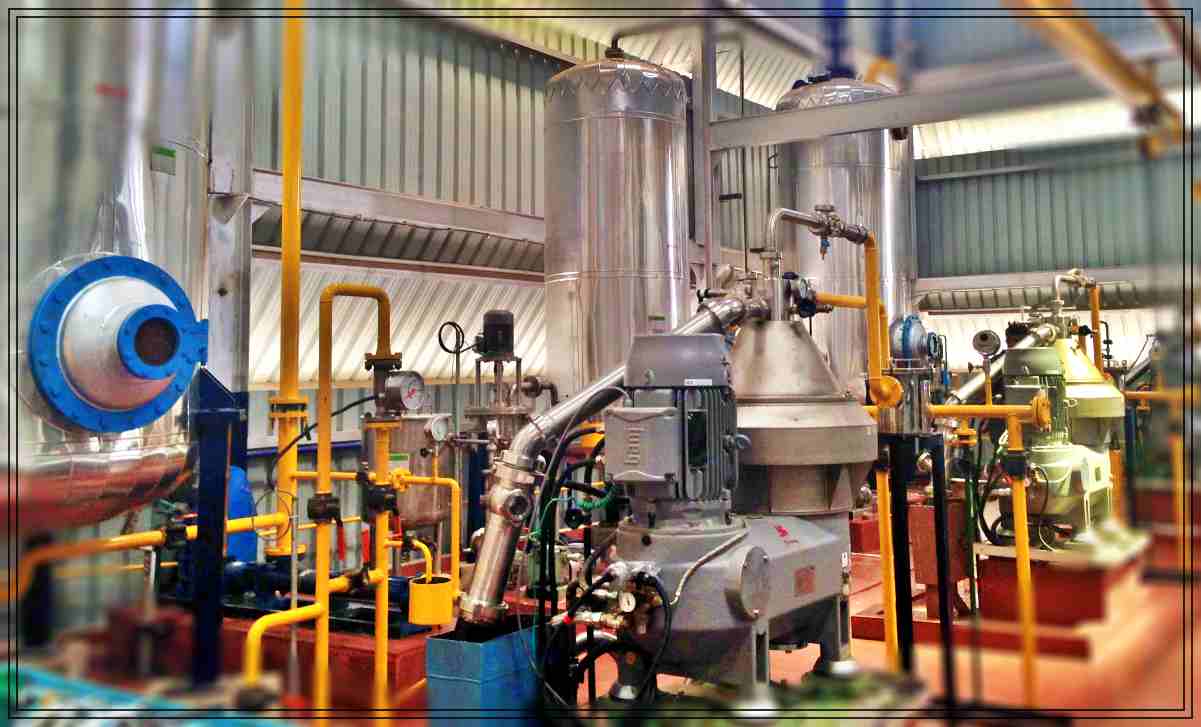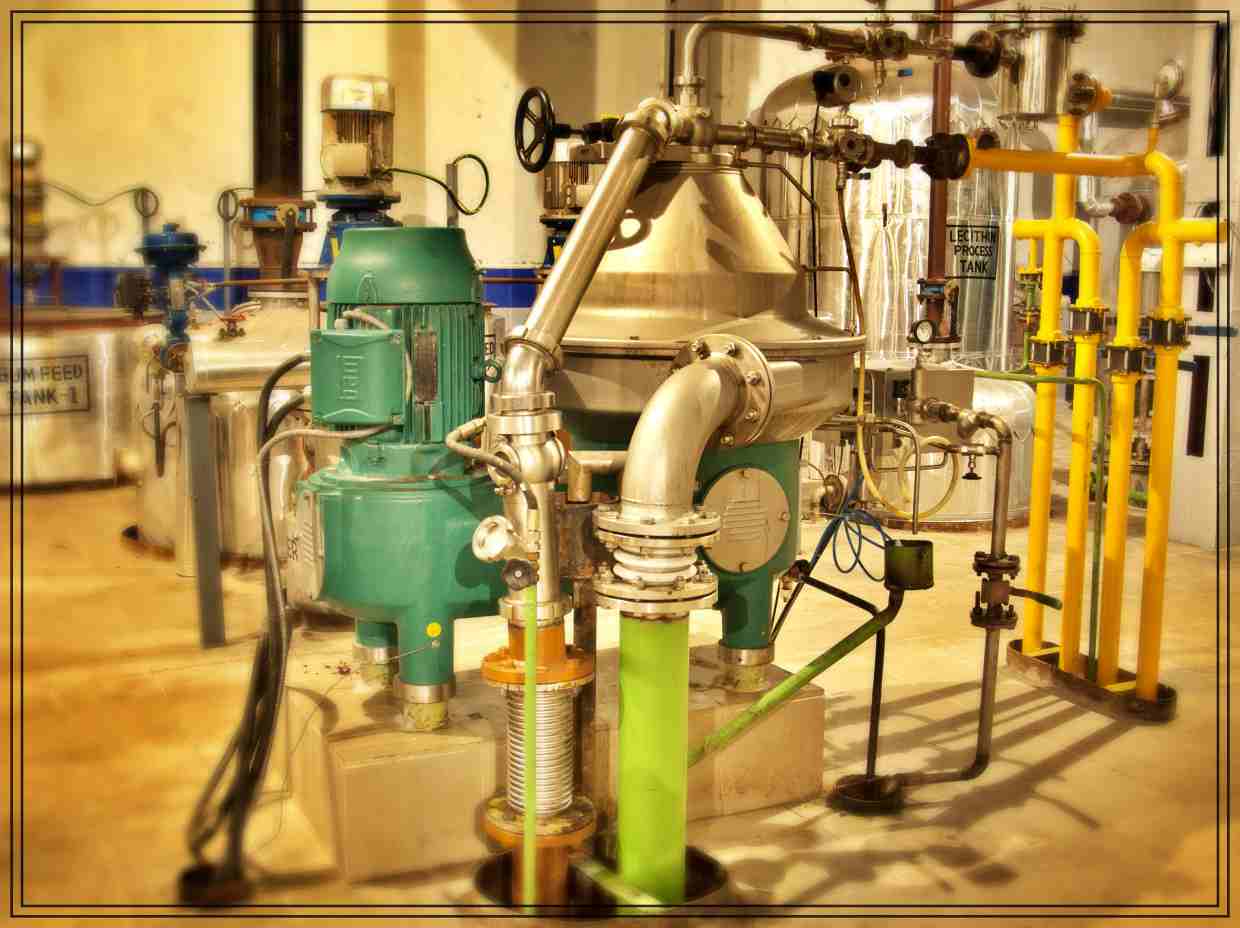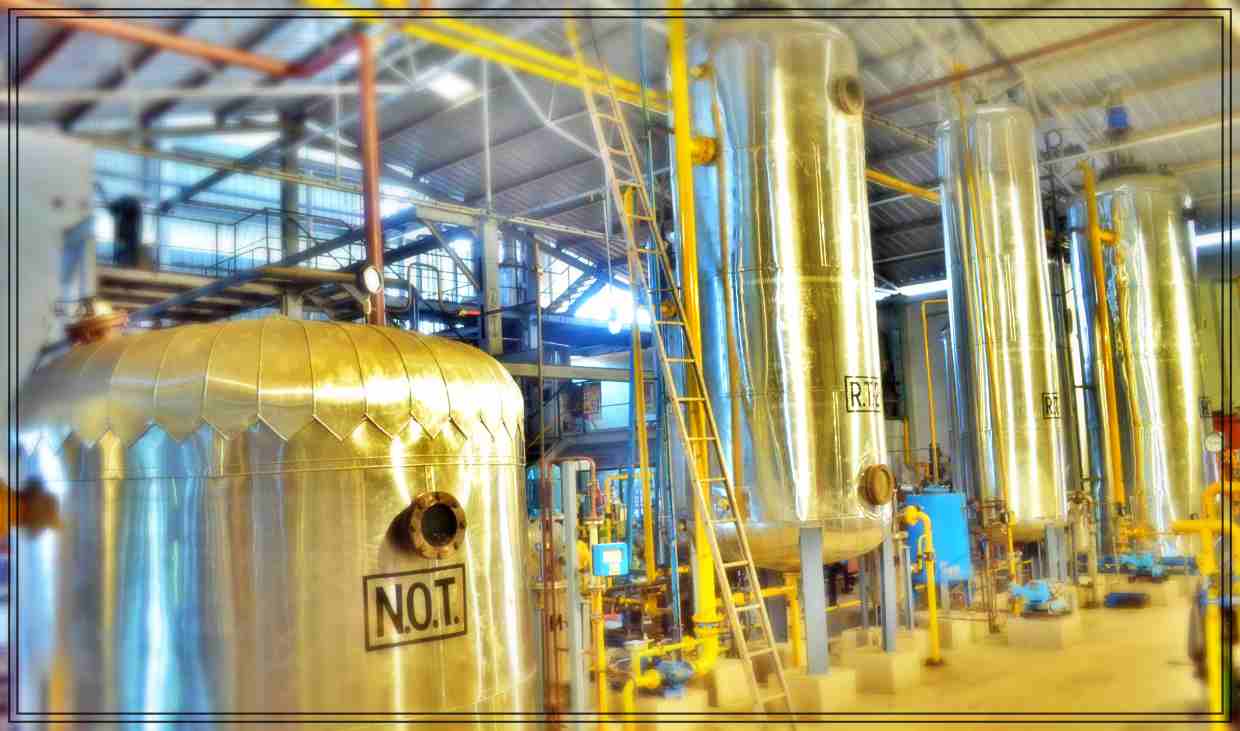One of the key steps in the refining process is the elimination of impurities from crude vegetable oils, especially the phosphatides or so-called gums. They need to be removed for two main reasons: they are responsible for high refining losses and they decompose, darken the oil due to their thermal instability.

We follow different routes for different oils:
Low FFA Crude Oils:
Water Degumming, Neutralization and Water Washing.
High FFA Crude Oils:
Total Degumming and Water Washing.
Water Degumming
In this process, crude oil is hydrated by mixing calculated amount of water. Since hydrated gums are insoluble in oil, hence it gets precipitated. These hydrated
gums are then separated from oil in Centrifugal Separator. In this stage, only hydratable gums are removed. For removal of Non-hydratable gums, the oil is conditioned by acid like phosphoric acid.
Neutralization
In this process, caustic lye is added to acid conditioned oil. It neutralizes free fatty acid, transforming FFA into soap. The oil is then passed to Centrifugal separator to remove soap from oil. This step also eliminates non-hydratable gums and metal traces.
Total Degumming
The Total Degumming process involves dispersion of phosphoric acid/citric acid into the oil, allowing a contact time and then mixing lye in this acid – oil emulsion followed by 2-3 hrs of retention time. Then the resulting oil is passed to Centrifugal Separator where gums are removed from oil.


Salient Features
Less Consumption of Utilities and Power
Low chemical consumption
Efficient removal of Phosphatides/gums
Minimum Oil Losses
Combi-plant design for Lye refining Total Degumming
HISHEAR, mixer for effective dispersion of reagent
Adequate retention time at each stage for efficient separation
